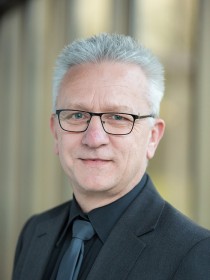JOINT PRESS RELEASE
8 leading European transmission system operators launch a common initiative to support the energy system to reach carbon neutrality
- They have published a joint paper that highlights the key enabling role TSOs are playing in the establishment of a climate-neutral society by 2050
- Reducing their carbon footprint and developing their transmission infrastructure to integrate renewables into the system and support electrification are the main ways they are helping to achieve this goal
12 July, 2021 - Reducing and limiting the carbon footprint of their own activities and value chains; expanding and developing their electricity grids to facilitate the integration of renewables and flexibility resources into the system; and supporting the direct and indirect electrification of different sectors of the economy: these are key ways 8 leading transmission system operators (TSOs) are helping to establish a climate-neutral society by 2050. In a paper published today, TSOs from Austria, Belgium, France, Germany, Italy, the Netherlands, Spain and Switzerland have launched a joint initiative which highlights the enabling role they are playing in the energy transition and provides concrete examples of their enabling activities. The group of TSOs teamed up to further analyse how their activities contribute to decarbonisation and develop ways to support the energy system to become carbon-neutral. They are strongly committed to reducing global greenhouse gas (GHG) emissions, supporting sustainable development and helping to transform the electricity sector as it moves from being fossil-based to being decarbonised.
In line with the aims of the 2015 Paris Agreement, the European Green Deal and related “Fit for 55” legislative package, the EU and Switzerland have committed to achieving carbon neutrality by 2050. In line with this, TSOs can contribute to decarbonisation and the mitigation of global warming. The core of their activities and responsibilities is to ensure the secure and high-quality delivery of electricity across national and interconnected transmission grids, which are the backbone of European society. However, the role TSOs play has been widening. They are having to manage an increasingly complex and digitalised energy system as Europe prepares itself for carbon neutrality; this energy system is one in which the share of fluctuating renewable energy sources and electricity uses are growing and in which consumers are gradually being empowered to take on active roles.
The electricity network will become the backbone of a greener energy system
As outlined in long-term energy scenarios, which predict the widespread adoption of electrical assets such as electric vehicles and heat pumps, electricity will play a key role in the decarbonisation of the economy due to the higher efficiency of electrical end uses and the integration of renewables into the energy system. The electricity grid will become the backbone of a greener energy system and the work of TSOs will be crucial for achieving Europe’s climate goals. TSOs are, therefore, currently playing the role of energy transition enablers: they are facilitating the decarbonisation of the European electricity system and, consequently, the decarbonisation of society as a whole, and are using complex and innovative tools to do so.
TSOs limit both their own carbon footprint (known as ‘direct emissions’) and the carbon footprint of their value chains (‘indirect emissions’)
TSOs monitor their direct and indirect GHG emissions in line with international GHG emission standards and implement measures to reduce them. Measures taken in this respect include reducing SF6 leaks and replacing SF6 gas with more favourable alternatives; efficiently developing their infrastructure to limit grid losses; employing energy efficiency measures; implementing green procurement procedures; and adopting circular economy approaches.
TSOs integrate renewables and flexibility into the energy system and support electrification
The share occupied by renewable energy sources is growing and consumers are being empowered to take on active roles in the system. By occupying a unique role in the energy value chain, TSOs are enabling the energy transition through a wide range of activities, from expanding their grids to facilitating the integration of renewable energy, new electrical uses and flexible assets into the system. Alongside these activities, TSOs are also facilitating developments in market design and regulatory frameworks, embedding digitalisation across their networks and investing in research and development.
TSO activities impact the decarbonisation of the system as a whole
Given the crucial nature of their activities, an assessment of the performance of TSOs with regard to sustainability and decarbonisation should not stop at evaluations of their carbon footprint. Moreover, in order to strengthen their work, TSOs should be explicitly recognised at European level as enablers of the energy transition and their activities should be clearly mentioned in GHG emission inventories under common assessment and monitoring frameworks, alongside GHG emission sources already associated with their carbon footprint.
The paper comprises a detailed overview of TSO activities and their contribution to the decarbonisation of European society. It includes a number of flagship grid maintenance and development projects undertaken by the paper’s authors, which illustrate their activities and contribution to decarbonisation in a tangible way.
The paper can be accessed here.
